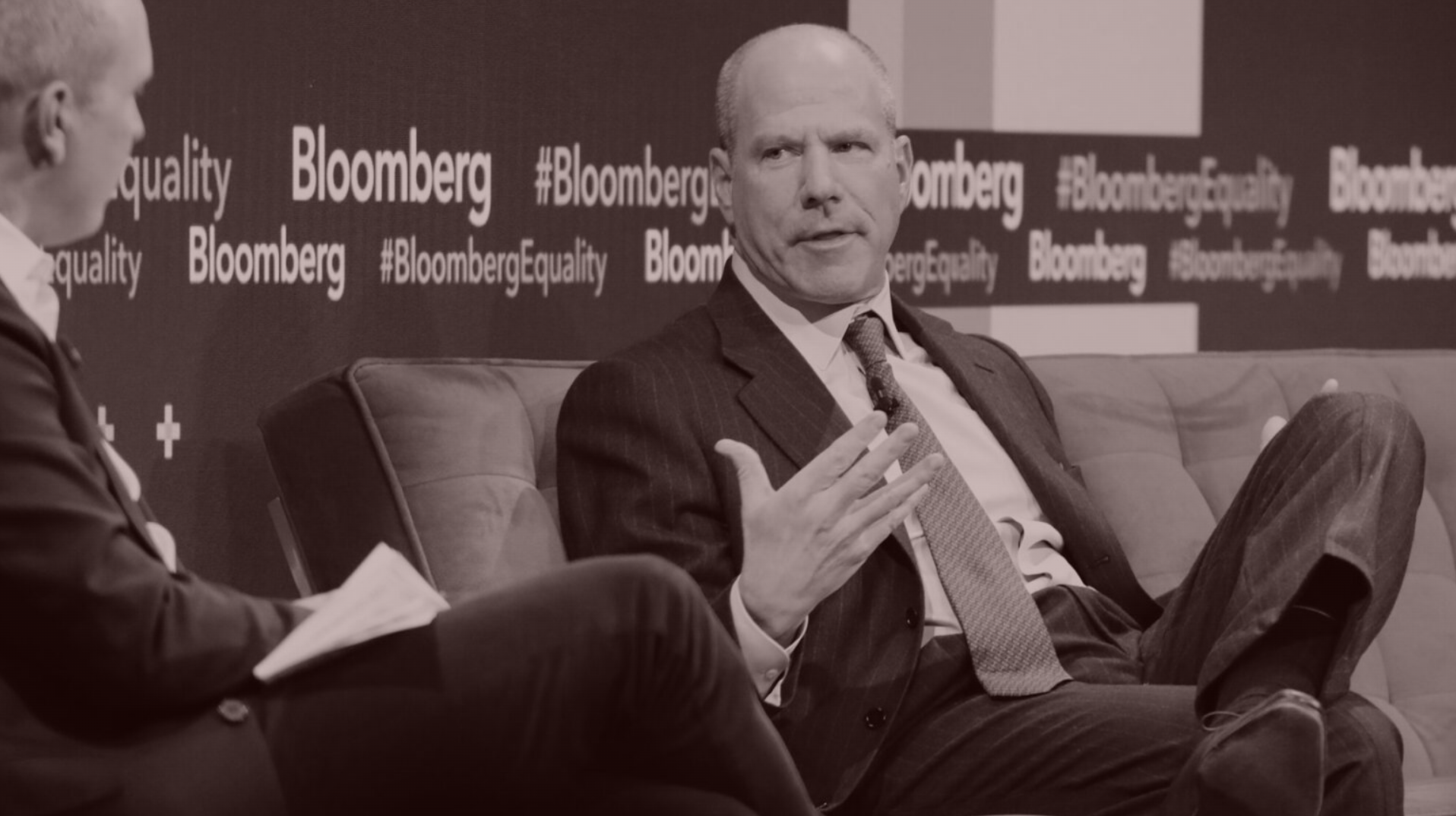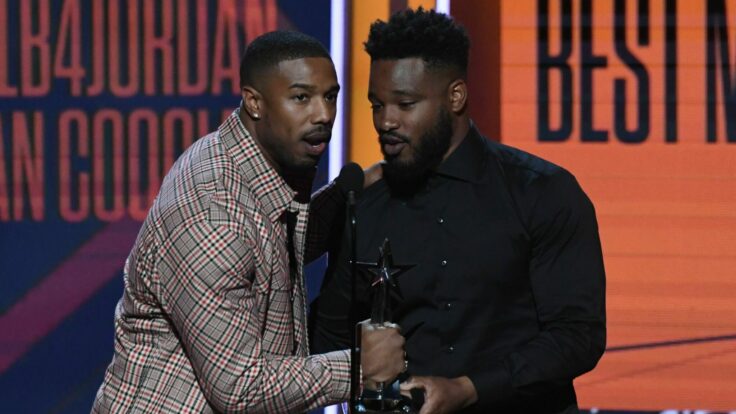 |
|
Welcome back to What I’m Hearing, and congrats to all the Emmy winners, even The Morning Show. It was great seeing so many WIH readers at events this weekend, especially those who didn’t just want to complain about the state of the business.
💫💫 Our live taping of The Town on October 24 at NeueHouse Hollywood sold out in less than 18 hours. Thanks to all the Townies! Don’t worry, we’ll have another great live event to announce very soon.
Programming note: On The Town, Lucas Shaw and I anointed Emmys winners and losers and the Hacks creators called in to reveal whose idea it was for Jean Smart to do a keg stand; Seth Meyers agreed that Stefon is the all-time greatest Weekend Update character; and producer David Beaubaire argued for more movie development (here’s his full deck, BTW). Subscribe here and here.
Got a news tip or an idea for me? Just reply to this email or message me anonymously on Signal at 310-804-3198.
Discussed in this issue: Bryan Lourd, Jon Winkelried, Matt Rosen, Dana Walden, Jason Weinberg, John Malone, Mike Flanagan, Beyoncé, Jeff Silver, Liza Colón-Zayas, Casey Bloys, David Zaslav, Ebon Moss-Bachrach, Laura Ingraham, Laraine Newman, and… the drunk Disneyland Club 33 couple speaks.
But first…
|
| Who Won the Week (Emmy Awards Awards Edition!) |
|
| The Obvious Winner: John Landgraf, the FX C.E.O., who should open up his contract ASAP after delivering Disney the 93 nominations and 36 wins that the company’s other executives will take credit for all year.
The O-fer Award: Amazon Prime Video, which won zero Emmys during the primetime show (and just four overall), out of a company-record 62 nominations.
Worst Stage Mom: Laraine Newman, the former SNL star, for a tweetstorm that included “FUCK. THE. BEAR!!!!!!!!!!!!!!!!!” when daughter Hannah Einbinder lost to Liza Colón-Zayas. (She later deleted it.)
Most Rigorously Choreographed Seating Arrangement: Disney’s Bob Iger, who positioned himself squarely opposite center stage with TV head Dana Walden directly on his left and film chief Alan Bergman equidistant on the right, just in case anyone (meaning everyone) was looking for signs of C.E.O. succession favoritism. The crew carefully replicated this scene at the Disney afterparty, where Iger was again positioned at center stage, flanked for the most part by Walden and Bergman, while Landgraf floated among the talent.
The Dodged Bullet Award: Casey Bloys, whose HBO/Max managed six televised awards, including the shock of the night in Hacks beating The Bear, in a year in which most at Warner Discovery expected a disaster.
The Oh, Hello Award: Peacock, which won its first primetime Emmy for The Traitors. Someday, Paramount+, someday.
Nicest Agent Shoutout Ever: Jean Smart, for wishing WME’s Scott Henderson a happy retirement. (Fun fact: Henderson played the ice skater in “Hitler on Ice” at the end of Mel Brooks’ History of the World, Part I.)
Most Honest Reaction Shot: Sofía Vergara mouthing “I knew it” to the guy behind her after Jodie Foster won in their category.
Most Soul-Sucking Moment: Ebon Moss-Bachrach and Taylor Zakhar Perez’s hostage-video spon-con for Johnnie Walker before presenting the limited series writing award, which managed to make all of us feel awful for a guy who had won an Emmy moments before.
Biggest Producing Error: During halftime of NBC’s Sunday Night Football, when Emmy-curious viewers might have actually flipped over to ABC, the show featured a bland tribute to a non-famous person (Greg Berlanti), a long and earnest paean to diversity by John Leguizamo, and a speech by another non-famous person (TV Academy president Cris Abrego). Click.
Biggest Producing Error, Runner-up: Scheduling the SNL tribute segment to air right after SNL lost to John Oliver, which everyone knew would happen. Lorne would have nixed that after dress.
|
|
|
| “It wouldn’t be a journey through Middle-earth without some trolls along the way.” —J.D. Payne, Amazon’s Rings of Power showrunner, responding to the vocal haters of his Lord of the Rings show.
Runner-up: “I’m completely unprepared for this moment.”
—Mike Flanagan, in a huge understatement after his Stephen King adaptation The Life of Chuck upstaged awards contenders like Anora and Emilia Pérez by winning the people’s choice award at Toronto despite having no U.S. distributor.
Related: It’s a sad comment on the awards movie business that Paramount couldn’t find a buyer willing to pony up for its surefire contender September 5 and will instead be forced to release the film itself. I’m told Warner Bros. did make an offer for the $11 million-budgeted film, which tells the Munich Olympics hostage story from the perspective of ABC News. But Paramount, whose acquisitions label Republic Pictures bought the film’s global sales rights last summer, thought it was too low. Yet because the studio didn’t see theatrical prospects, and with the sale of the company pending, it had hoped another distributor would step up with a more reasonable bid. None did.
And now some sale news and my take on the possibility of consolidation coming to the talent management business…
|
 |
| The Plan to CAA-ify Talent Managers |
| TPG leveraged its investment in an agency into a $7 billion sale and $2.4 billion return. Can it run the same playbook in the management space? |
|
|
|
| Have you seen this talent management company investment deck floating around town? It’s from TPG, the private equity firm that initially put money into CAA back in 2010, then acquired a majority stake a couple years later, and sold the agency last year to luxury goods billionaire François-Henri Pinault’s family office in a deal that valued it at a whopping $7 billion. TPG made out pretty well on its faith in Bryan Lourd & Co., telling shareholders last November that it pocketed $2.4 billion from the 13-year relationship. CAA was “a cornerstone transaction,” TPG C.E.O. Jon Winkelried boasted. “We have built a unique ecosystem in the space, and we believe there will be many opportunities to leverage our capabilities going forward.”
That’s private equity speak for Thank you, next. Now, TPG has indeed found its follow-up opportunity on the talent side of entertainment—or so its leaders think. I’m told that the firm’s on-again, off-again acquisition talks with Grandview, the management company, are not only back on, but that the transaction will likely close soon. TPG and LionTree—the bank repping Grandview and its leaders, Matt Rosen and Jeff Silver—have mostly but not entirely finished haggling over what the management and production business will generate this year, and two sources believe the transaction will be announced in the next couple of weeks. Good for those guys; they’ve definitely been out there looking for a deal. (Usual disclosures: TPG is an investor in Puck; WME represents Puck but not me personally; my wife is a talent manager, but not at any of the companies mentioned here.)
The Grandview transaction would follow TPG’s summer acquisition of Untitled Entertainment, another management firm that produces film and television with its clients. Untitled, run by Jason Weinberg and Stephanie Simon, reps mostly actors, counting stars like Zoë Kravitz, Sam Rockwell, Dakota Johnson, and Maya Hawke among its deep roster. Not a lot of superstars, but they have volume. Grandview, a smaller but well-regarded shop, focuses on literary clients—writers and directors—with a list that includes Top Gun: Maverick filmmaker Joseph Kosinski and rising creators like Longlegs filmmaker Osgood Perkins and Jeremy Saulnier, director of the current Netflix hit Rebel Ridge. The two assets complement each other pretty well, and the plan, I’m told, is to house them and others together under a unified banner. TPG basically said as much this summer, announcing a new entity under C.E.O. Michel Pratte, whose company owned Untitled. They’ve made overtures to at least a couple other top management firms, according to sources familiar. And Jacqui Hawwa, a partner at TPG Growth, said in June that the goal is to scale “a talent representation company with the resources and capabilities to benefit managers and the talent they serve.”
Okay… but how? TPG’s strategy, according to its deck, calls for “repeating the agency consolidation story” with managers. Back in the early 2010s, when TPG first saw something special in Lourd, Kevin Huvane, and Richard Lovett that had nothing to do with Lovett’s art or guitar-playing skills, there were dozens of smaller agencies and specialty firms representing athletes, authors, influencers, and more. Slowly, through more than a decade of private equity-fueled acquisitions by CAA, WME (whose parent, Endeavor, counts Silver Lake as a major backer), and UTA (with Investcorp and then EQT and others), the space consolidated considerably. Gone are many of the specialty agencies, like IMG (sports/fashion, to Endeavor) and N.S. Bienstock (broadcasters, to UTA). Most notably, in 2021, CAA gobbled up ICM Partners, the fourth of the so-called Big 4 agencies, and home to TV creators like Shonda Rhimes and Bill Lawrence. The result of that, as I’ve written, has been a barbelling of the talent agency business.
In its deck, TPG now estimates that CAA represents 40 percent of the talent market, WME has 28 percent, UTA’s got 18 percent, and the rest of the agencies together rep the other 14 percent. (Those are TPG’s numbers, not mine, but other agency sources told me they seemed directionally accurate. And, yes, I know WME and others used last year’s strikes to jettison underperforming clients.)
Regardless, the top three agency players now control about 85 percent of talent, and TPG believes there’s a “larger consolidation opportunity over the coming 5-15 years” in the management space, “given current fragmentation, mirroring the agency space pre-2010.” Is TPG right? And if so, is Hollywood ready for the great management company roll-up?
|
|
|
| More than a few managers I’ve spoken to have scoffed at the notion of a similar full-scale M&A opportunity in the space. Your cousin may not have been able to understand the difference between Ari Gold and E on Entourage, but management is supposed to be fundamentally different than agenting. Managers are charged with steering a client’s career choices and, often, their creative development, while agencies are supposed to serve two discrete functions: secure employment and negotiate deals. (Screaming into phones is just a fun byproduct.)
I know those duties often overlap, but while agents must be licensed by the state of California, managers can be literally anyone—from a professional operator at a well-known firm to your overbearing stage mom or, say, your short, whiny buddy from back in Queens. Big agencies serve thousands of clients, whose calls are usually returned in the order of their importance to the bottom line, while management firms are typically smaller and more personal in their service. Managers are allowed to, and often do, produce movies and shows with clients, adding production fees and potential long-tail revenue to the 10 percent commissions that are industry custom in both the agent and manager business. Untitled’s Weinberg, for instance, produced Showtime’s Ray Donovan with client Liev Schreiber, and HBO’s Enlightened with client Laura Dern.
Culturally, they’re different businesses as well. While agencies tend to function like full-service clearinghouses for talent, devoting teams to even mid-level stars and creators, managers more often represent individuals individually (or with a colleague or two). Clients have agencies, but they typically have a manager, not a management company.
That’s a key distinction because, like all talent-based businesses, the assets of the management companies drive their Rivians home at night. I’m generalizing here, but if a manager retires or leaves Untitled or Grandview, the clients are probably less likely to stay there than if, say, a big CAA agent retires or even bails for a rival. You rarely see management firms handed down from one generation to the next, as CAA was bequeathed to its current leaders from Michael Ovitz, Ron Meyer, et al. There’s also little startup cost to launch a management firm. Agents become managers so often it’s a running joke in the representation community. By contrast, while I’m sure it happens, I’ve never heard of a manager starting his or her own talent agency.
Given all that, would management outfits simply be more difficult to pick off, combine, and roll up? Probably. But on the other hand, some management firms have already positioned themselves as, essentially, agencies. Twenty-five years ago, Ovitz did so with his ill-fated Artists Management Group. And that’s the crux of the litigation between CAA and its defectors that formed Range Media Partners. The Range guys are alleged to have basically started an agency under the guise of a management company, though I’m on record saying that argument is kinda silly. Range is acting like all management firms these days, trying to add value by both generating and packaging projects, and creating businesses with their clients.
Many management firms also already have deep pocketed investors or private equity firms behind them. Range is backed by Mets owner Steve Cohen’s Point 72 and Liberty Global. Anonymous Content is owned by Emerson Collective, Laurene Powell Jobs’ investment firm. Rick Yorn, who manages everyone from Leo DiCaprio to Jennifer Lawrence, has had billionaire Ron Burkle as a backer for years. Outside money has been flowing into these companies for ages, thanks to the eternal desire of rich people to be adjacent to famous people.
So while the culture and business practices of agents and managers may be very different, it makes sense that TPG deal teams think they can make money on both. After all, CAA was not really considered a scalable business, not like private equity usually likes to scale. In the end, P.E. firms prefer toll takers, or companies that extract necessary pass-through fees. Agencies are one example, and management firms, due to their even closer business and personal relationships with their talent, have become another. Meanwhile, a lot of the guys running the big management companies have been doing it for years and sometimes decades; they may be looking to get paid and, in some cases, get out. Brillstein, one of the aging management firms, sold last year to Casey Wasserman’s company. TPG probably thinks it can get these businesses for a discount, with upside.
Maybe. Or maybe managers are just too fundamentally different. E is not Ari, and they co-exist for this reason. If so, it could be a wild few years in the representation business as the money flows in and everyone tries to figure it out.
|
|
|
| Dylan Byers follows up on David Zaslav’s big carriage deal, noting John Malone’s Liberty owns big stakes in both Warner Discovery and Charter: “Liberty wasn’t going to undermine WBD through Charter,” said one source. Exactly. [Puck]
DirecTV’s Disney settlement will enable the skinnier bundles everyone thought they’d enable before the two-week blackout, but the bigger move would be finally consummating its two-decade courtship of Dish. [Bloomberg]
Why Taylor Swift’s Kamala endorsement is much more likely to juice turnout than to change minds. [NY Times]
Pixar employees are venting anonymously about awful conditions to make Inside Out 2 and the effort to make it feel—yikes—“less gay” after Lightyear. [IGN]
China’s box office is really struggling this year, and a lack of Hollywood product isn’t the problem. [Barron’s]
Beyoncé amusingly strong-armed GQ into putting her on a global cover holding a glass of Beyoncé-branded whiskey. Lauren Sherman has more on this latest sign that celebrity media is now almost entirely controlled by the celebrities. [Puck]
Finally, the definitive Q&A with the couple who was kicked out of Disneyland’s Club 33 for public drunkenness and is spending a fortune on legal fees to be reinstated. They seem lovely. [THR]
|
|
|
| A few interesting reactions to lawyer Ken Basin’s Thursday guest column on how to fix TV deals…
“Love these suggestions, but no agent has ever said to a [top] client, ‘You’re going to make less money, but it’s for the greater good.’ It just won’t happen. The system he is proposing, [which is essentially] to abandon cost-plus upfront payments, will most definitely result in less money being paid out to talents in the short term, followed by the possibility of more money later. That’s if the streamers actually pay. Practically speaking, I’d rather get my money now, even if it’s less than what I might theoretically get later.” —A writer-producer
“Lots to agree/disagree with [here], but too often this subject is just discussed at the surface with little attention to detail. Our industry is struggling so much and we need people to really understand all aspects of the business/creative dilemmas. Good for you.” —An executive
“[Basin’s] really not wrong, but the toothpaste is gone. Writers were focused on strikes and agents, and meanwhile the studios shot the toothpaste right past them. It’s gone. Home runs are over.” —An agent
|
|
|
| Correction: Fox News’ Laura Ingraham has mentioned Disney’s Dana Walden by name during at least one of Ingraham’s rants about the debate being “fixed” by Kamala’s friend. Thanks to a couple Fox News viewers (I won’t out you) for pointing this out.
Have a great week,
Matt
Got a question, comment, complaint, or a proper eulogy for John Oliver’s dog? Email me at Matt@puck.news or call/text me at 310-804-3198.
|
|
|
|
| FOUR STORIES WE’RE TALKING ABOUT |
 |
|
 |
| Zaz Deal Heat |
| Gut-checking David Zaslav’s Charter deal euphoria. |
| DYLAN BYERS |
|
 |
|
 |
| UTA’s Art Pause |
| Unpacking the dissolution of UTA’s Fine Arts division. |
| MARION MANEKER |
|
|
|
|
|
 |
|
|
|
Need help? Review our FAQs
page or contact
us for assistance. For brand partnerships, email ads@puck.news.
|
|
You received this email because you signed up to receive emails from Puck, or as part of your Puck account associated with . To stop receiving this newsletter and/or manage all your email preferences, click here.
|
|
Puck is published by Heat Media LLC. 227 W 17th St New York, NY 10011.
|
|
|
|














